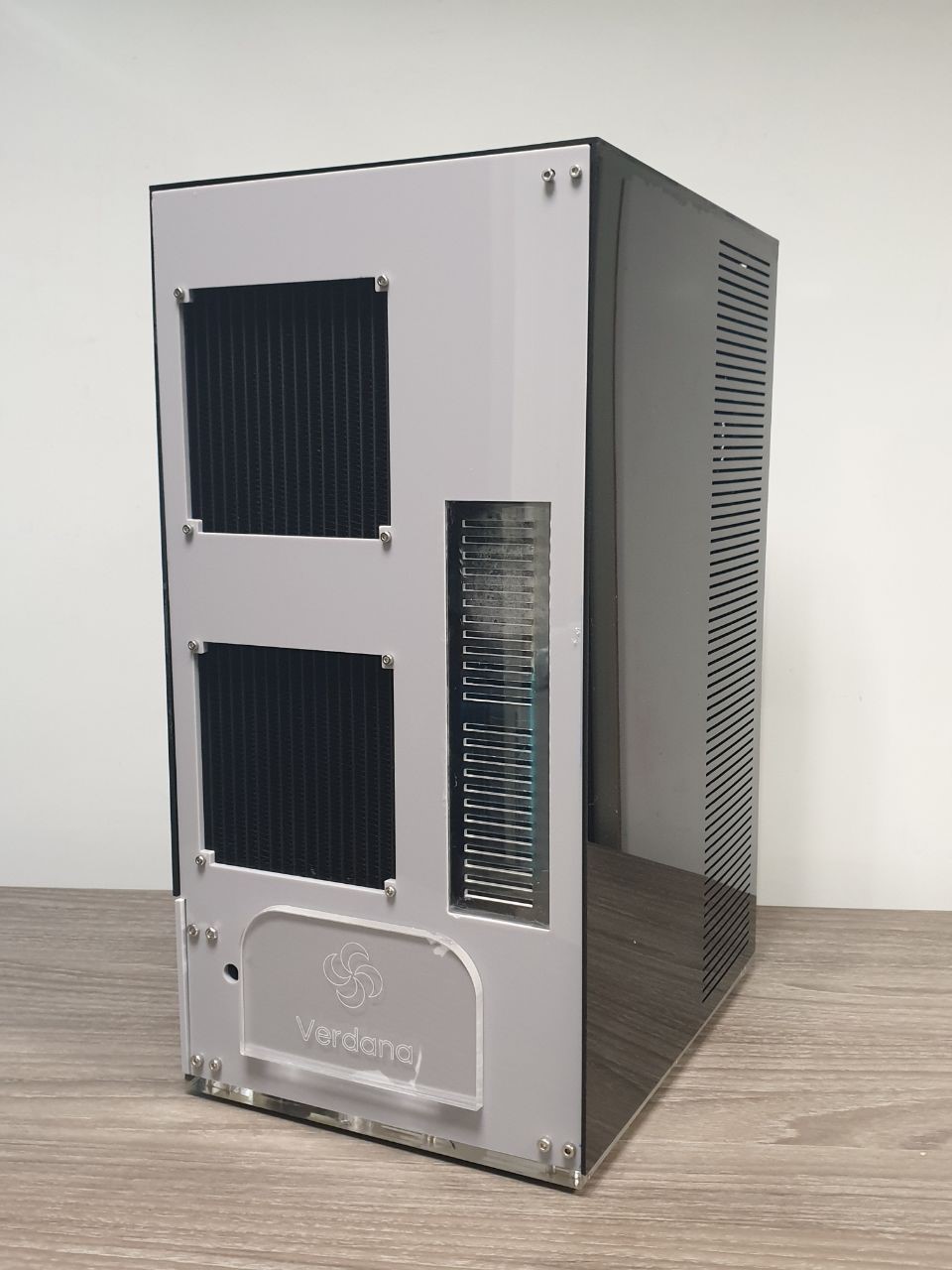Verdana: Affordable, effective and risk-free cooling for hostel residents

Picture of Verdana air cooler
Project Motivation
Thermal comfort is one of the most pressing issues in Singapore, and students living in hostels are among those worst affected by the rising temperatures. In a survey of around 180 hostel dwellers that we conducted, 70% reported severe thermal discomfort during their stay. Around 40% of these students suffer in silence due to restrictions against portable air conditioners or the high costs to purchase and use such devices if they are permitted. Hence, many students end up paying an average of S$800 per annum to register and use portable air conditioners in addition to the purchase cost of these devices, or they take the risk of using the portable air conditioners illegally in their rooms.
Design
Verdana is a thermoelectric cooling device that operates in the sweet-spot between a portable air conditioner and a fan: it provides the right amount of cooling where a user needs it the most. The cooler consumes only a fraction of the energy required by typical air conditioners and creates a comfortable micro-climate of well circulated air that is around 2 to 3 degrees Celsius below ambient around the user. Verdana offers risk-free cooling by meeting all hostel regulations and helps the average hostel dweller save between S$200 and S$400 per semester on utility and registration fees.
Market
Our beachhead market is student hostels, with an estimated size of S$7 million. This beachhead market is a first stepping stone towards entering the larger, rapidly growing global sustainable cooling market, with an estimated market size of S$150 billion.
For the hostel market, we have chosen a rental model to accommodate the financial constraints of our customers. Verdana costs between S$1 to S$2 per day to rent and features a loyalty programme that allows users to purchase the device cheaply at the end of the rental period. In addition, Verdana will be delivered directly to students at their hostels, relieving them of the inconvenience of transporting the air cooler during check-in. Preliminary trials with potential users have shown very promising results where 80% of hostel dwellers are keen to sign up for the service. With this rental model, it is expected that the customer acquisition costs (CAC) payback period could be as low as 6 months.
Project Team
Students:
- Chan Yuan Jun, Joel (Environmental Engineering, Class of 2019)
- Devesh Narayanan (Mechanical Engineering, Class of 2019)
- Tan Zhe Chuan (Chemical Engineering, Class of 2019)
Supervisors:
- Elliot Law (engel@nus.edu.sg)
- Hozefa S/O Husainee (enghh@nus.edu.sg)

